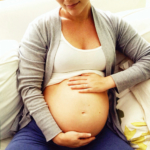A recent study examined the prevalence of perinatal depression in diabetic and non-diabetic women. This was a prospective cohort of women recruited from a clinic serving low-income women in Chicago, Illinois. Women were identified as having diabetes (either gestational or pre-pregnancy) or no diabetes. Postpartum depression was defined as a positive screen on the Patient Health Questionnaire-9.
A total of 305 women participated; 100 (30.5 %) had gestational diabetes mellitus (GDM) and 33 (10.8 %) had pre-pregnancy diabetes. Compared to women without diabetes, women with diabetes (either GDM or pre-pregnancy diabetes) had similar rates of antenatal and postpartum depression. However, when the researchers compared rates of depression in women with pre-pregnancy diabetes to the rest of the women (including those who had gestational diabetes), they found that postpartum depression was more common among women with pre-pregnancy diabetes (34.8 % vs. 16.7 %) (OR 2.67, 95 % CI 1.05-6.78). This association persisted even after adjusting for potential confounders.
Why? The authors speculated that there are two ways to explain the observed relationship: “One is that the burden of diabetes leads to depressive symptoms over time. Another theory pertains to the inflammatory theory of depression. This theory, well supported outside of pregnancy, suggests that depression is a proinflammatory state and other morbidities that increase the inflammatory burden may potentiate depressive symptoms (Leonard and Maes 2012).”
Miller ES, Peri MR, Gossett DR. The association between diabetes and postpartum depression. Arch Womens Ment Health. 2015 Jul 18. [Epub ahead of print]








Leave A Comment